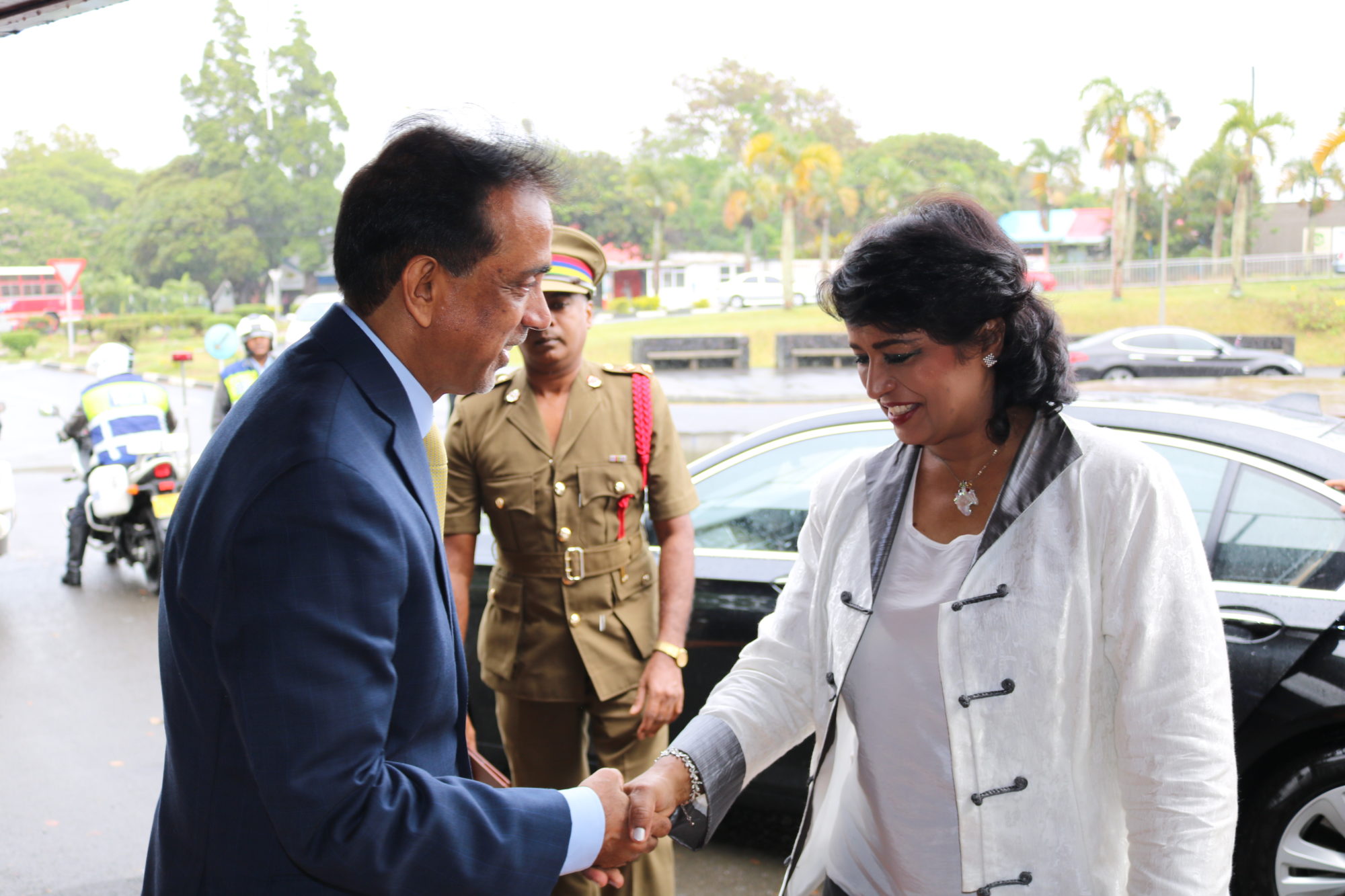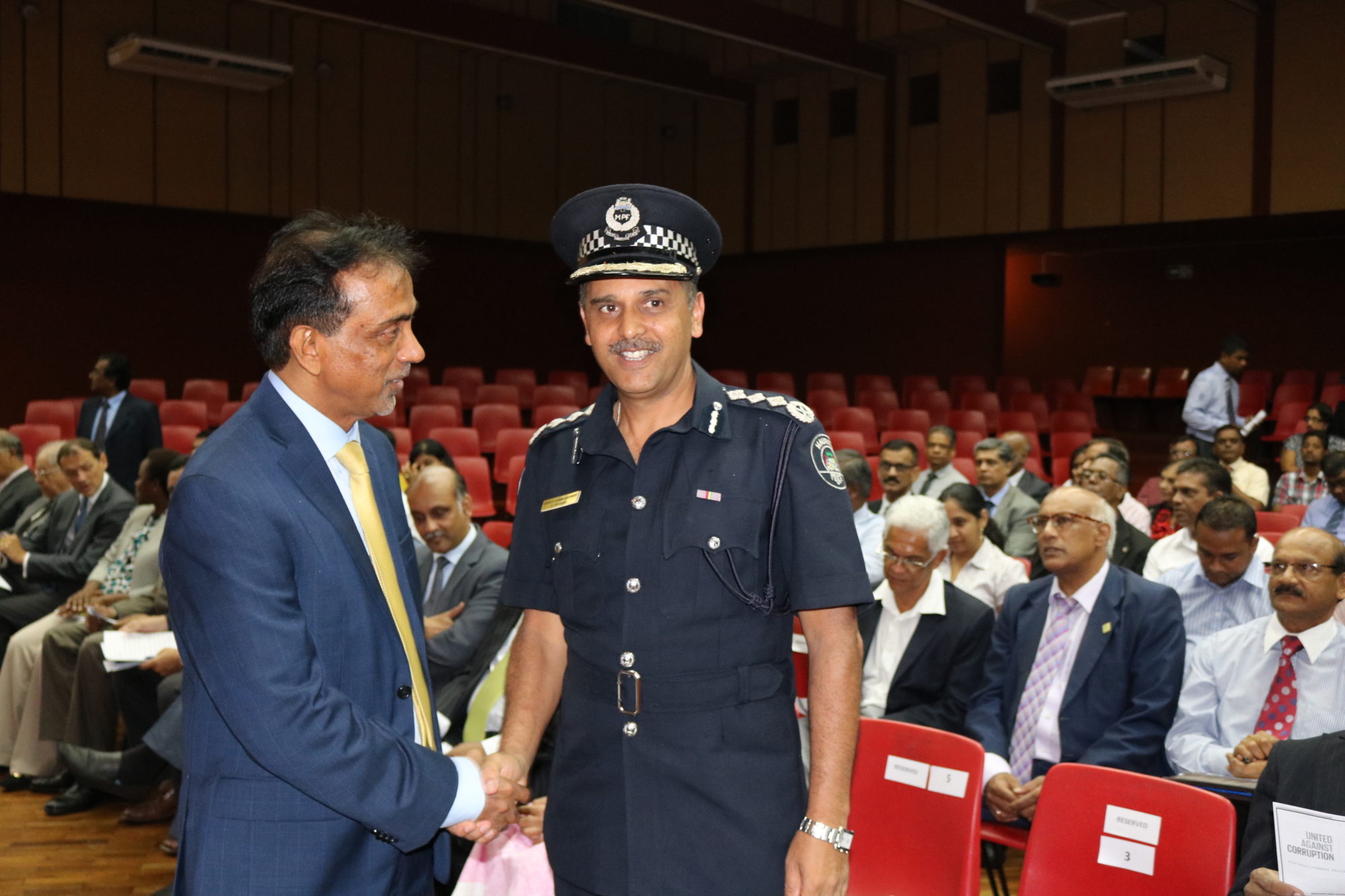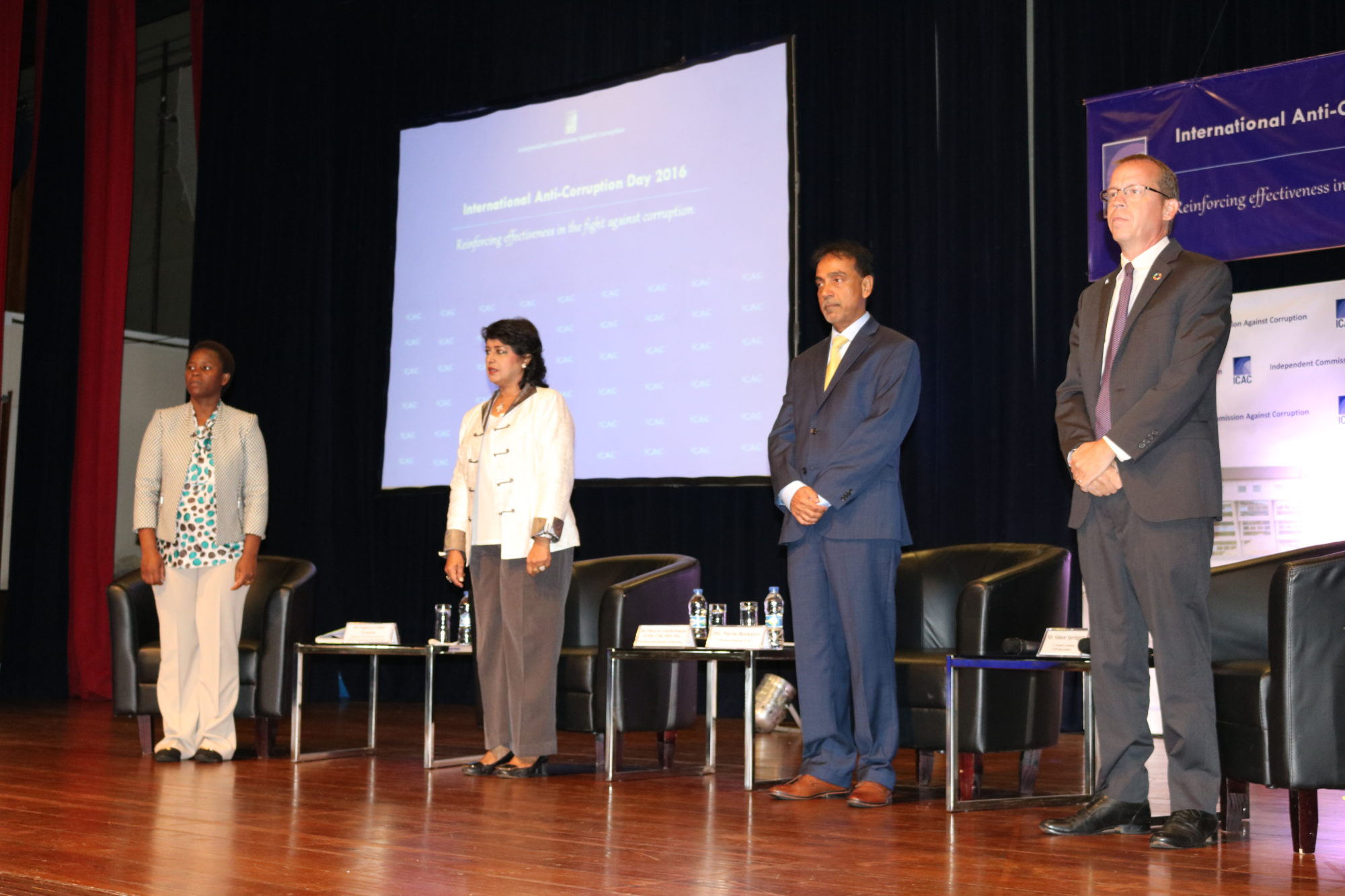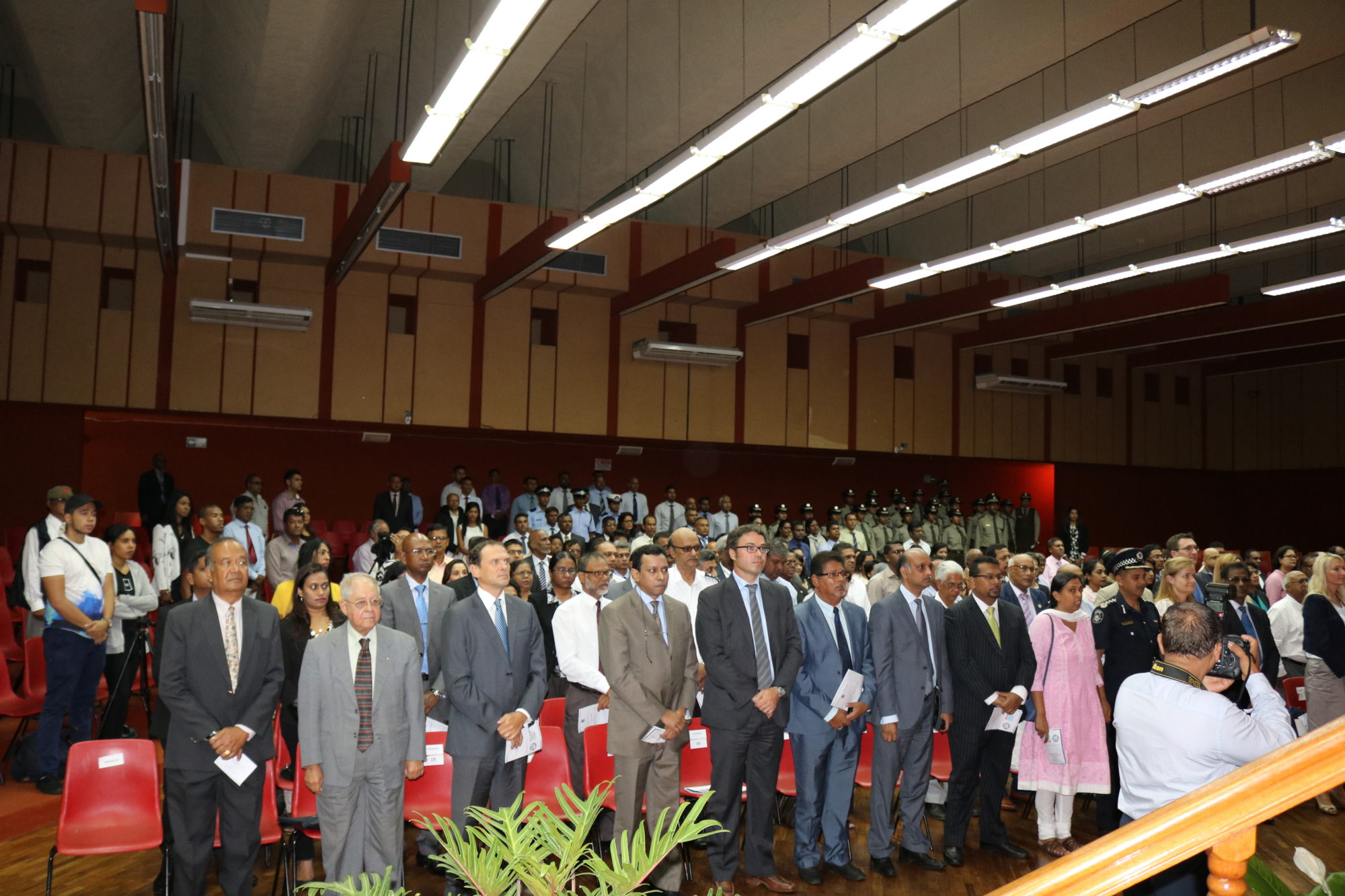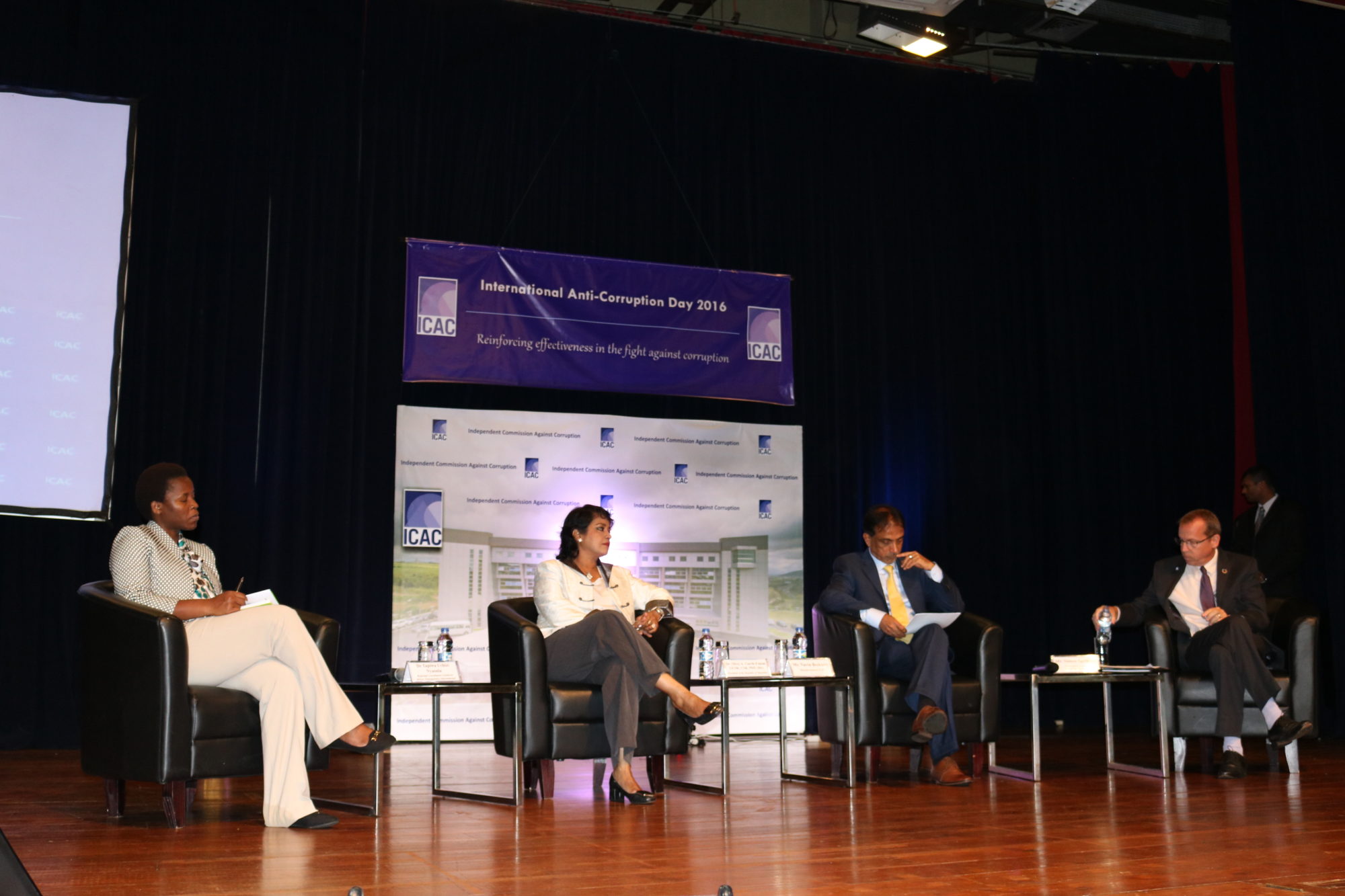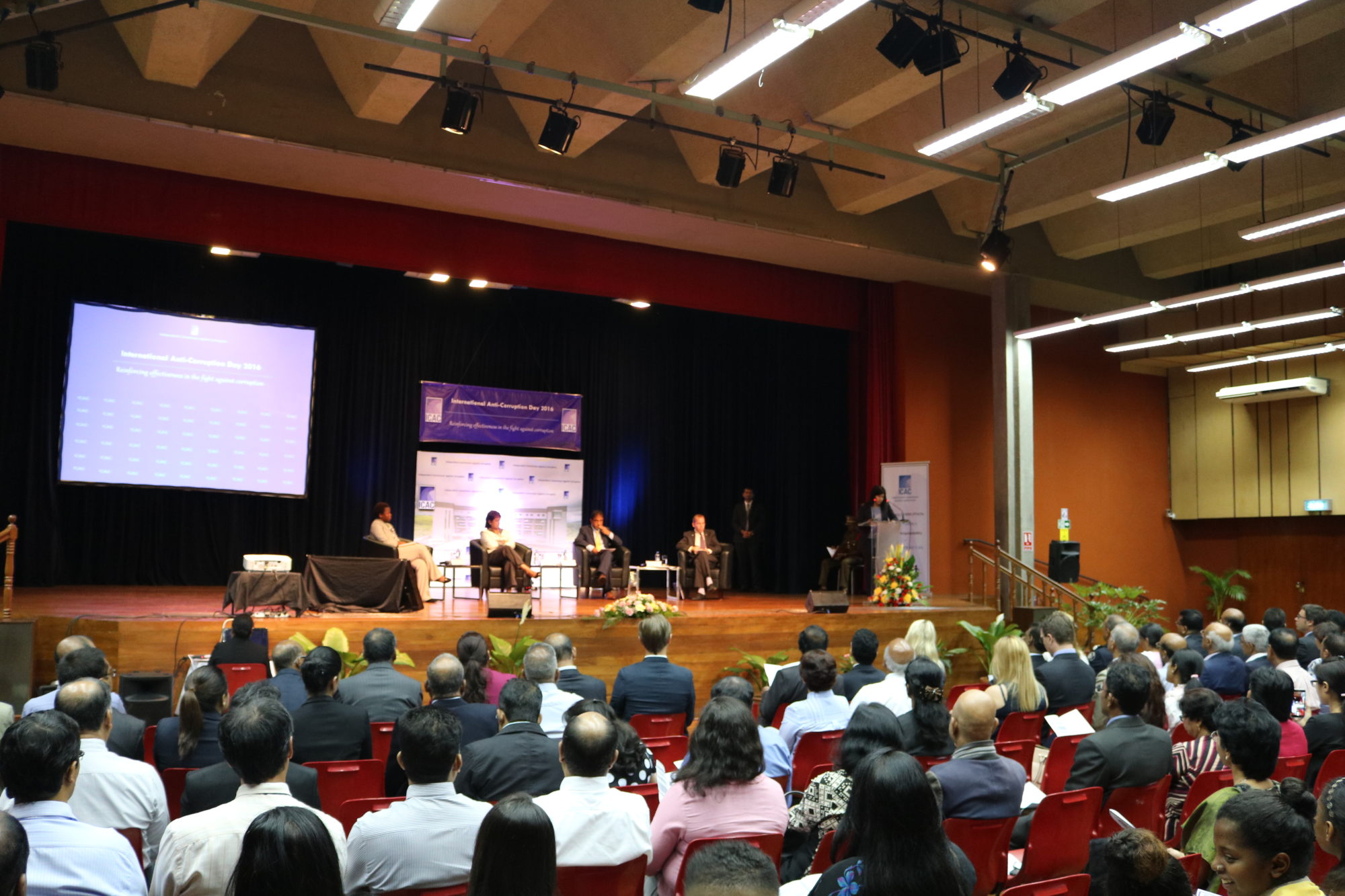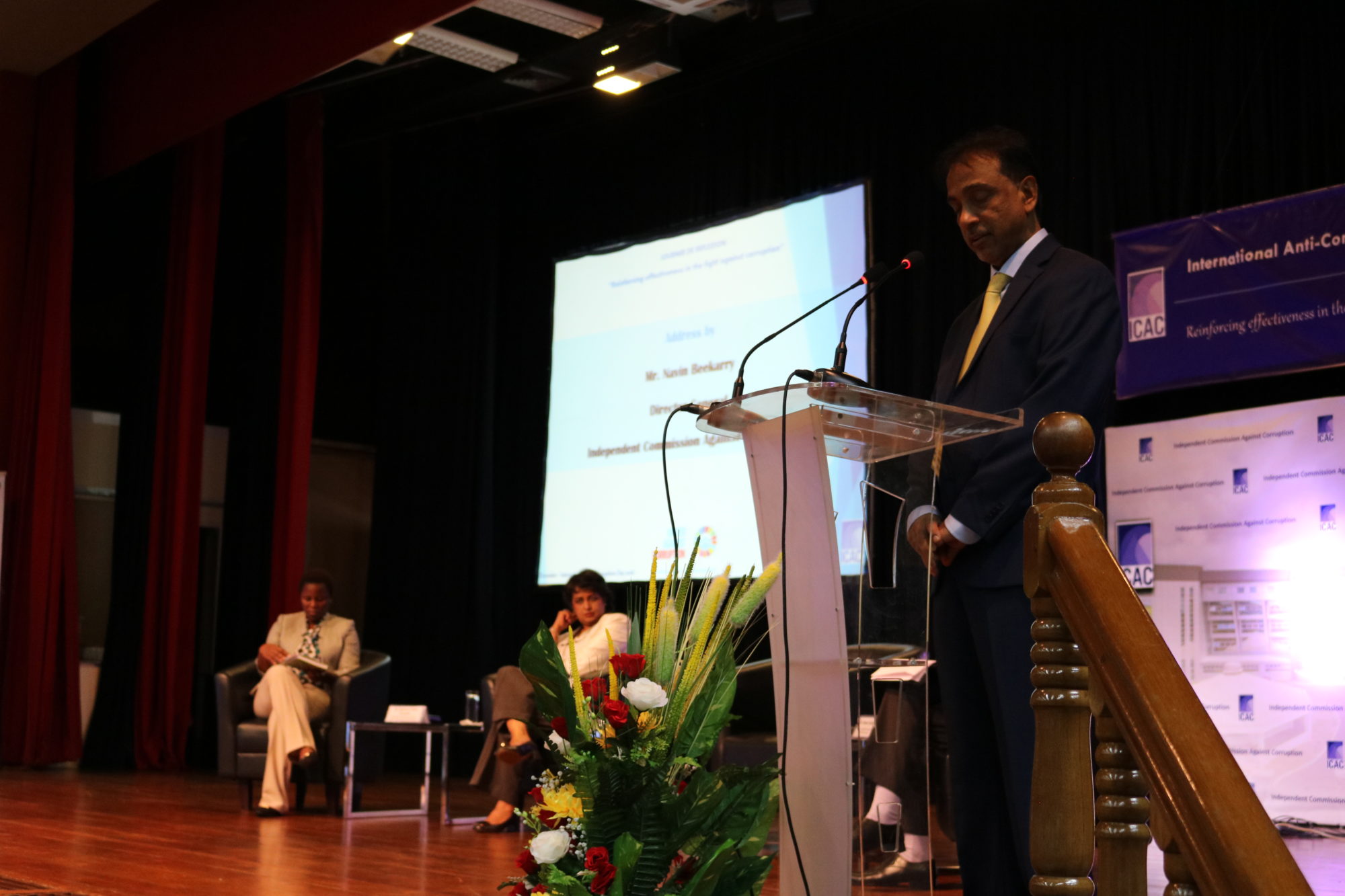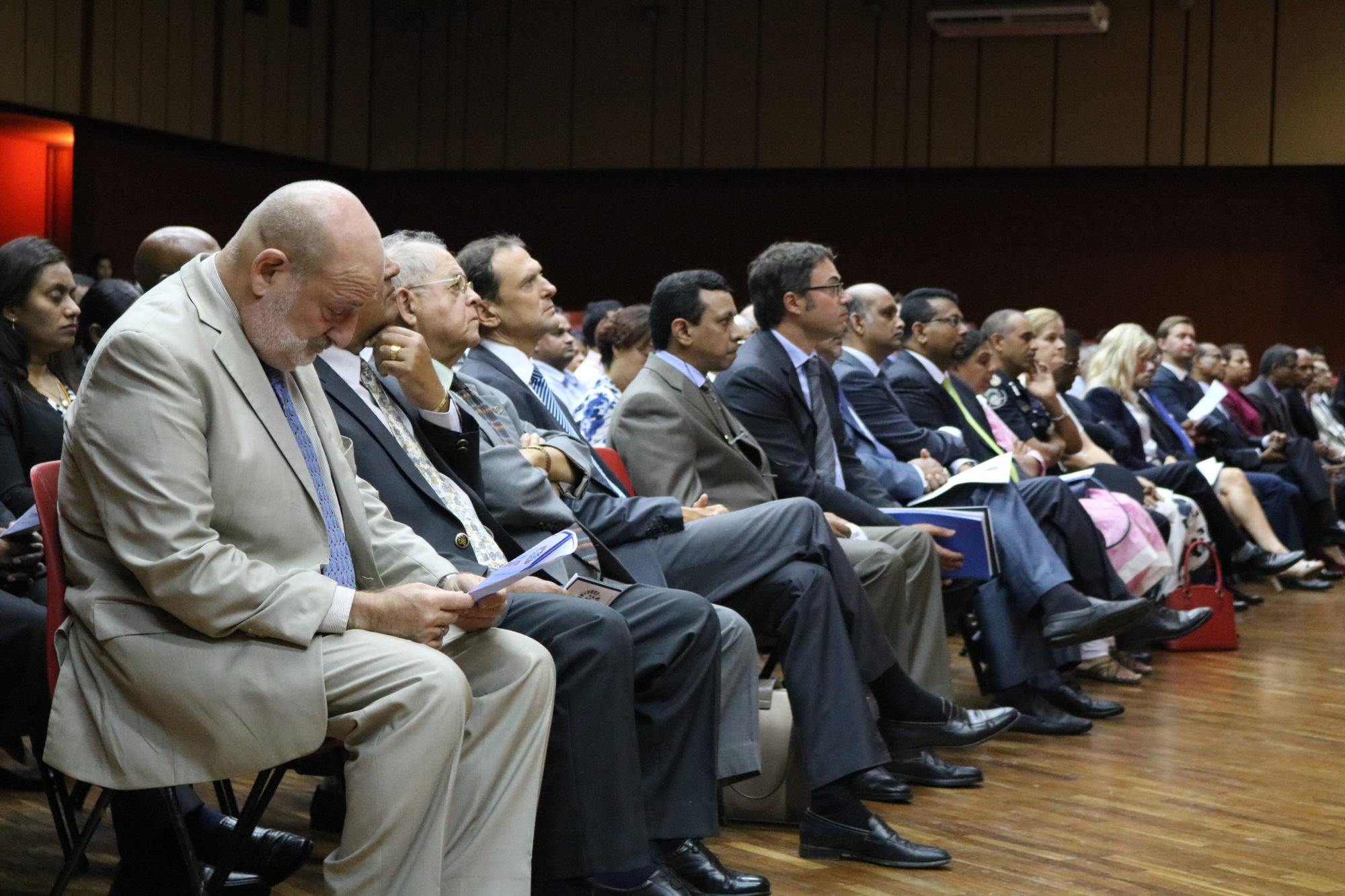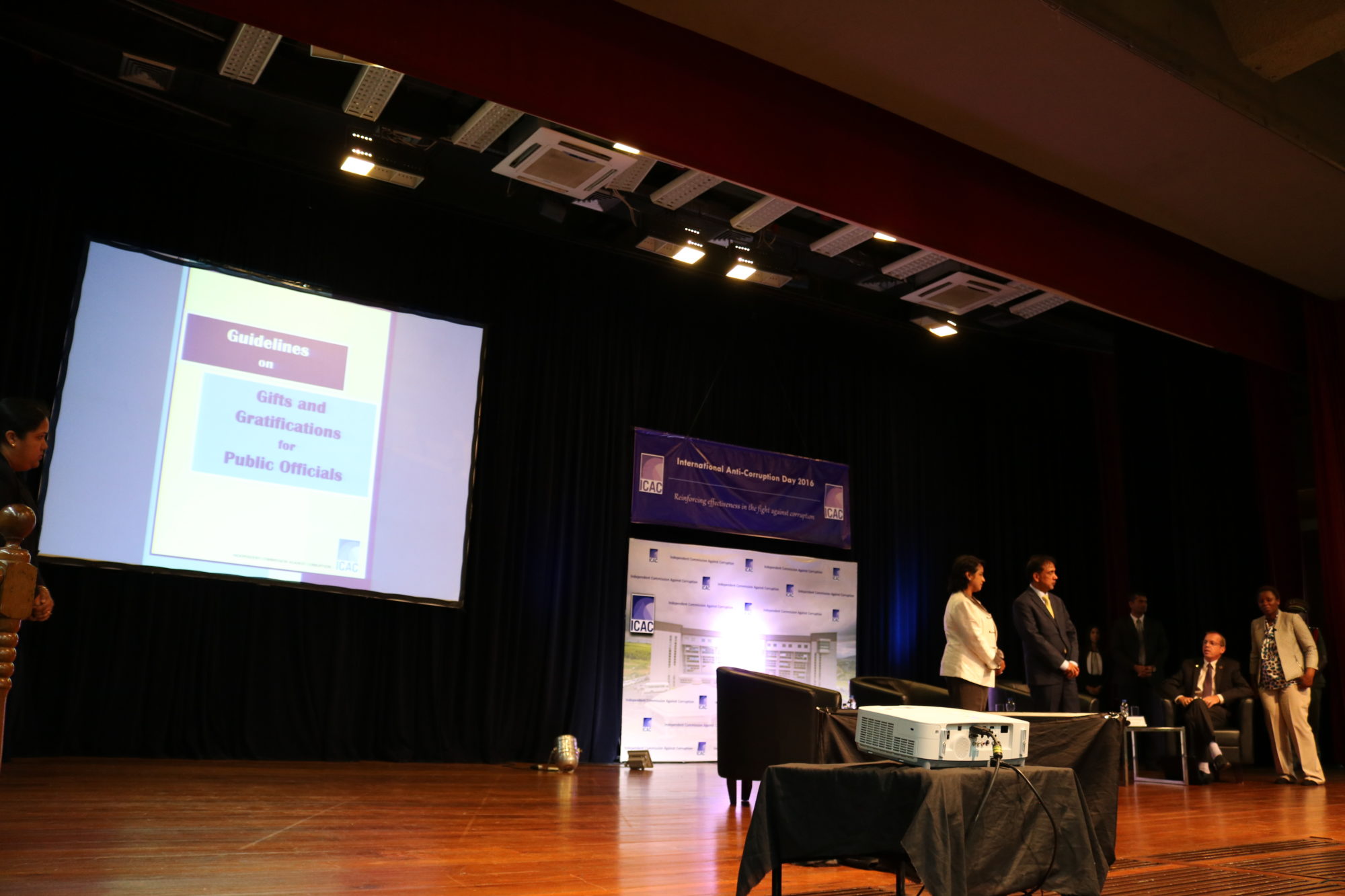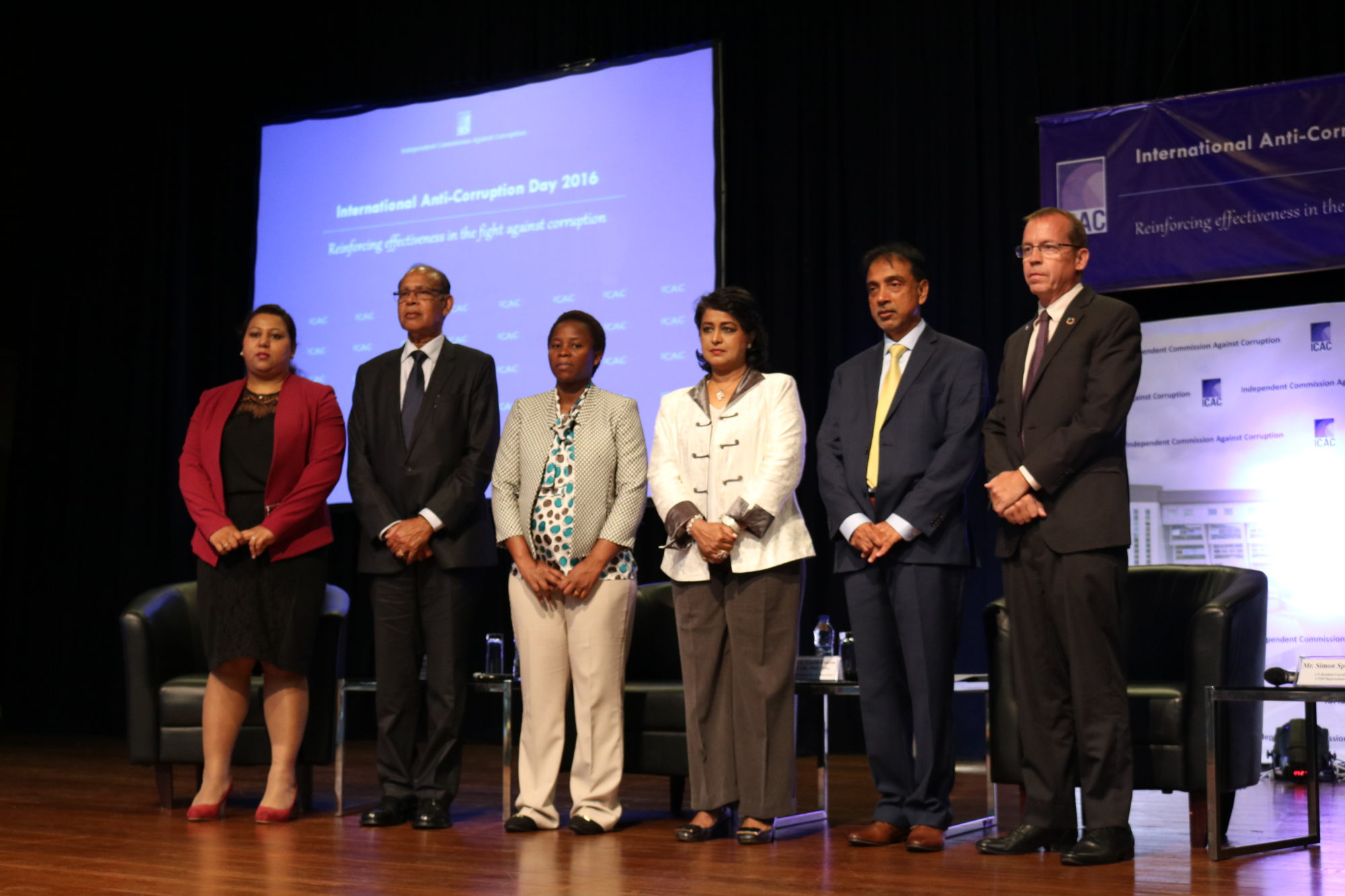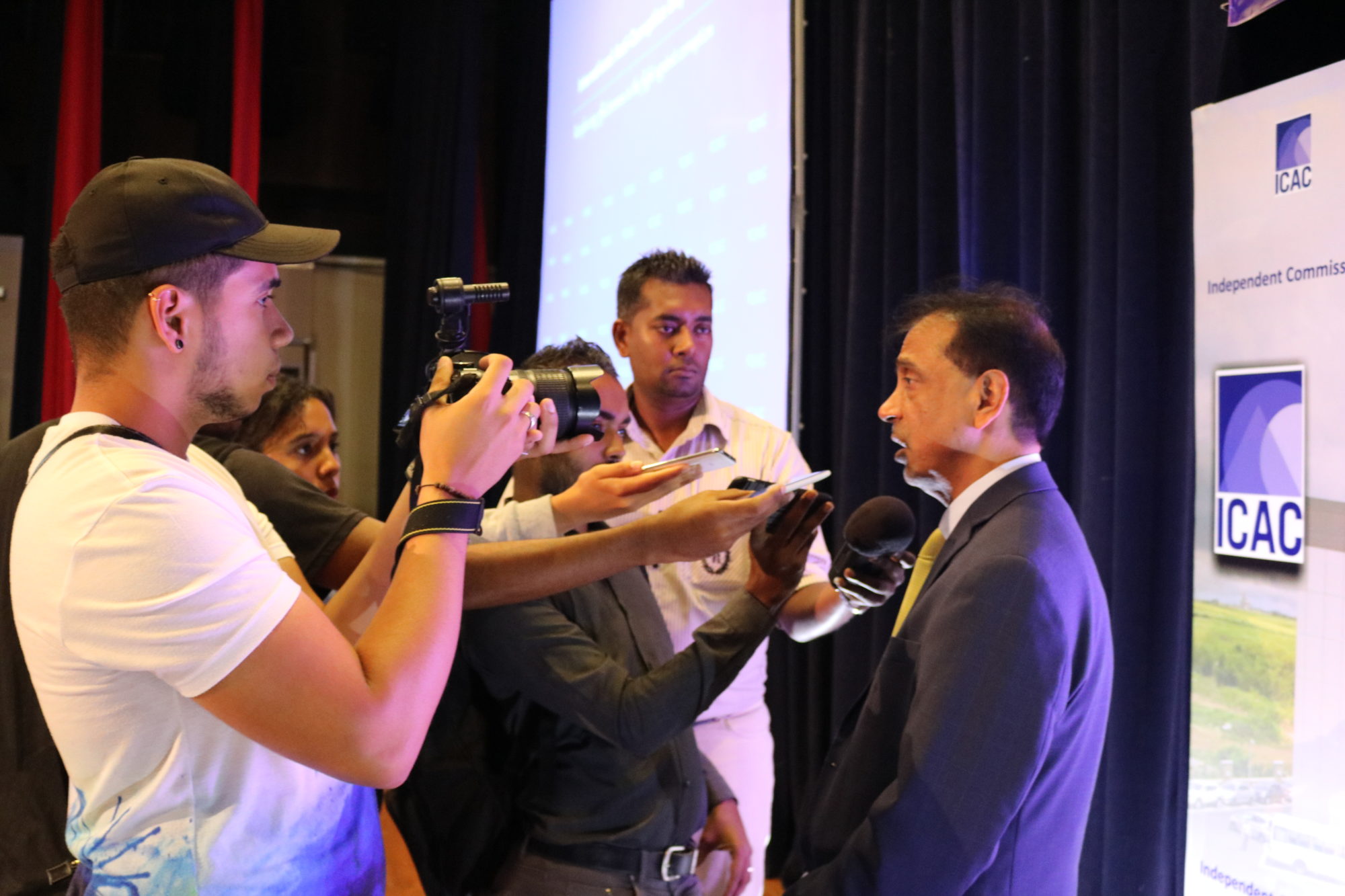Commemorating International Anti-Corruption Day 2016> Director General’s Speech> Octave Wiehe Auditorium, Réduit, Mauritius
Her Excellency Dr. (Mrs) A. Gurib-Fakim, President of the Republic of Mauritius
His Excellency Mr P. Vyapoory, Vice-President of the Republic of Mauritius
Members of the Diplomatic Corps
Mr. Simon Springett, UN Resident Coordinator and UNDP Resident Representative
Heads of International Organizations
Dr Tapiwa, Regional Coordinator-Southern Africa, Transparency International
Mr Rampertab, member of the Parliamentary Committee
Mrs Hamuth-Lauloo, Master and Registrar of the Supreme Court
The Commissioner of Police, Mr Nobin
Board members of ICAC
Mr. J.C. Zara, CEO, Mauritius Institute of Directors
Members of the Discussion Panel
Heads and Representatives of the public and private sectors, parastatal bodies and civil society organisations
Members of the press
Colleagues from the ICAC
Distinguished guests
Ladies and gentlemenGood morning.
First of all, on behalf of the Independent Commission Against Corruption, allow me to extend a warm welcome to Her Excellency, the President of the Republic of Mauritius, and express our heartfelt thanks to Your Excellency, for gracing this present event, which is being held in the context of the commemoration of the International Anti-Corruption Day 2016 on the theme ‘Reinforcing effectiveness in the fight against corruption’.
Allow me also to thank all of you, from different sectors of work, for taking time off your schedule to respond to our invitation for today’s event. I take your presence here today to be a symbolic statement from you all of your commitment to work with the ICAC in fighting corruption and money laundering. I thank members of the discussion panel and the moderator for having accepted to be with us.
Today, L&G, is the 9th of December, a day when countries celebrate the International Anti-Corruption Day across the world. The United Nations suggest that citizens take this day to reflect on the fight against corruption. Leaders, institutions, NGOs and citizens around the world are taking this day to reflect on the problem of corruption which is recognized by the world community as being a top priority to address to achieve inclusive sustainable development.
We, at the ICAC, have done exactly that on 2 fronts: 1) we have during the last week or so engaged with multiple sectors of the societal spectrum to develop a conversation about how to push the fight against corruption forward and to develop collaboration with our partners; 2) we have also started a deeper reflection about ways and means to ensure greater effectiveness in the fight against corruption.
1. Engaging with the Different Sectors
We have during the last week organized 16 events with different partners. The program kicked off with the competition debate on corruption with tertiary education students, then moved on the continue our dialogue with the private sector through the PPPAC. We then went to Rodrigues to engage wit the establishment and other stakeholders to explore avenues of future collaboration in the fight against corruption. Last Monday, the ICAC went around the island to meet with the population in 33 CABs in order to sensitize them about the ICAC and their role in fighting corruption. We opened an ICAC sub-office in PL. We launched a code of conduct for councilors and Best Practice Guides for Allocation of Stalls. Yesterday, we organized a conference on the role of ICT in fighting corruption and in the afternoon we had a conference with the Legal Profession and the Judiciary on their role in fighting corruption. Today is the big day and tomorrow we have an event with the Youth on corruption being organised by TM in collaboration with ICAC.
So, L&G, we have done the full circle in trying to engage with numerous stakeholders across sectors to develop collaboration in pushing forward the fight against corruption.
At the same time, you will also have to notice the major investigation being carried out by the ID during the recent week on money laundering arising out of drug trafficking.
As at date, we have 7 active platforms working against corruption namely for the youth, civil society, NGO’s, trade unions, the private sector, construction sector and a public –private sector platform.
Is that all that can and need to be done?
2. Enhancing Effectiveness of the ICAC
14 years down the line in implementing the national AC legislation, and 11 years after I left Mauritius for the US, I now see myself back and again in this seat, I might say, hot seat, trying to define the way forward.
L&G, a lot has been achieved during those years- adopting the legislation, setting up the relevant institutions, and operationalizing their departments. As at mid-November, ICAC has secured the conviction of 216 persons involved in 180 cases of corruption and money laundering, while another 195 persons are being prosecuted in 129 cases at court level. At the level of prevention, ICAC has so far conducted 142 Corruption Prevention Reviews in public bodies, resulting in 2736 number of recommendations to review the way business is being carried out by these public bodies to reduce drastically the potential for corruption. At the level of education, numerous sensitization campaigns have been organised throughout the population.
It is now time to sit back and take stock of what has been achieved in order to define the way forward. The obvious question here, L&G, is this: how effective, as a nation, are we in the fight against corruption and money laundering today? Another way of asking the same question is: are laws and institutions sufficient to wage effective war against corruption? The debate has started in the global regulatory community about the effectiveness of systems being put in place in countries around the world.
Since July 2016, I have embarked the Commission in an introspective exercise. We are currently reviewing the internal procedures and the standards with which we carry out our mission as laid out in the Prevention of Corruption Act.
More importantly, we are asking ourselves the following question. Corruption and money laundering are evolving rapidly, for example with electronic and technological advances. How are we, as an institution, adapting to these changes and how can we better equip ourselves proactively to meet these new challenges? Ladies and gentlemen, I can assure you that a number of measures are already in place and others are well underway. We are working on reinforcing the internal structures and systems as well as the operations through, for example, computerization of the different systems and processes.
It is for this reason that the collaboration that we have developed so far with the different sectors can contribute to the debate about how to enhance the effectiveness of the institution and its operations.
Finally, L&G, an anti-corruption agency is but one pillar supporting the good governance of the edifice that is the State. There are other pillars as well. The legislative, executive, judicial, the civil society, the media, NGO’s, to name a few, constitute the other pillars contributing to the health of our democratic system. It is an undeniable fact that only one pillar on its own will never be able to withstand the weight of this fight. It needs the support of other pillars, whose strength resides in the integrity of each brick, i.e. each one of you. The strength of each brick is determined by one simple thing: our moral values, the very center and foundation of our life. This is why we have decided to enhance the collaboration between the ICAC and other stakeholders in this fight.
The ICAC can’t do it alone.
I am sure this “Journée de Réflexion” today will yield some elements to stimulate discussion on the matter. And we will be happy to hear your views.
Let me thank you once again for your presence today. I wish you all a fruitful “Journée de Réflexion”.
